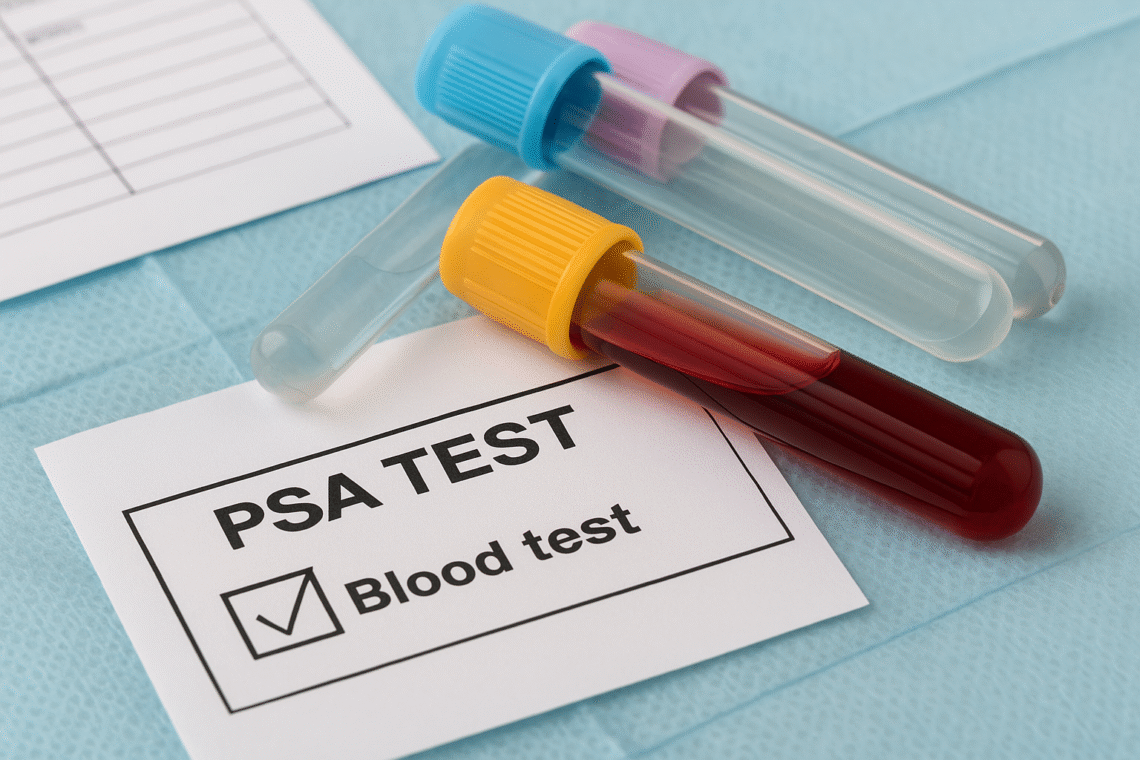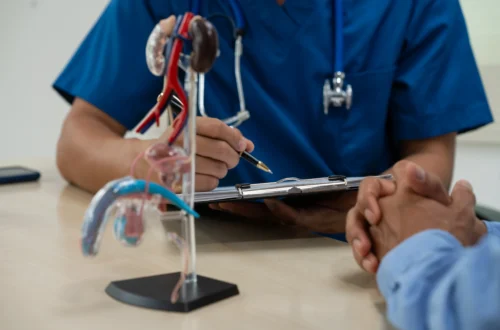Introduction
Prostate cancer is one of the most common cancers among men, yet it’s often surrounded by confusion and anxiety. Many patients ask me whether they should be screened, what the tests mean, and how to know if they’re at risk.
The truth is, prostate cancer screening isn’t the same for everyone. While early detection can save lives, unnecessary testing may also lead to anxiety and treatments that some men might not need. Understanding the pros and cons helps you make the right decision for your health.
What Is Prostate Cancer?
The prostate is a small gland located below the bladder and in front of the rectum. It produces part of the fluid that carries sperm during ejaculation.
Prostate cancer develops when abnormal cells grow inside this gland. The good news is that many prostate cancers grow very slowly — and in many cases, men live long, healthy lives without ever being affected by it.
That’s why screening is about balance — finding cancers that matter while avoiding unnecessary worry or treatment.
Who Is at Risk?
Every man has some risk of developing prostate cancer, but certain factors increase it:
- Age: The risk rises significantly after age 50.
- Family history: Having a father or brother with prostate cancer increases your risk.
- Ethnic background: Black men tend to develop prostate cancer more often and at younger ages.
- Diet and lifestyle: Diets high in red meat and low in fruits and vegetables may raise risk.
What Does Screening Involve?
Screening means looking for signs of cancer before symptoms appear. The main test used is the PSA (Prostate-Specific Antigen) blood test.
The PSA test measures a protein made by the prostate. Higher levels can be a sign of cancer — but also of other noncancerous conditions such as benign prostatic hyperplasia (BPH) or prostatitis (inflammation).
This is why a high PSA result doesn’t automatically mean cancer. In most cases, your doctor will repeat the test or order further evaluation before recommending a biopsy.
Sometimes, a rectal examination may also be done, but studies show it is less accurate for screening compared to PSA testing.
What Happens If the PSA Is High?
A high PSA test should never cause panic.
Most of the time, it simply means the prostate is enlarged or irritated.
Before repeating the test, doctors often recommend avoiding ejaculation or long bike rides for at least 48 hours, as both can temporarily raise PSA levels.
If your PSA remains elevated, a urologist may suggest imaging or a prostate biopsy — a small tissue sample examined under the microscope. This helps confirm whether cancer is present and how aggressive it is.
Benefits and Risks of Screening
There are clear benefits, but also important limitations.
✅ Possible Benefits
- Detects cancer earlier, when it’s easier to treat.
- May reduce the risk of dying from aggressive prostate cancer.
- Helps some men prevent advanced disease.
⚠️ Possible Harms
- Many prostate cancers grow so slowly that they never cause harm.
- Some men may undergo surgery or radiation unnecessarily, leading to side effects like urinary incontinence or erectile dysfunction.
- False alarms are common — many men with high PSA don’t actually have cancer.
When Should You Consider Screening?
Most experts recommend starting the conversation about screening:
- At age 50 for men at average risk.
- Between 40–45 for men with risk factors (family history or Black ethnicity).
- Stopping screening around age 70, unless you’re very healthy and your doctor advises otherwise.
Ultimately, the best choice depends on your age, family history, and personal preferences. The goal is not to test everyone, but to make informed decisions together with your healthcare provider.
How to Reduce Your Risk Naturally
While no diet or supplement can guarantee prevention, healthy daily habits make a big difference:
- Eat more fruits, vegetables, and fish rich in omega-3s.
- Limit red and processed meat.
- Exercise regularly and maintain a healthy weight.
- Don’t smoke, and limit alcohol intake.
These habits not only lower your cancer risk — they also protect your heart, circulation, and prostate health overall.
Key Takeaway
Prostate cancer screening is not a “one size fits all” recommendation.
The PSA test can save lives when used thoughtfully, but it can also lead to unnecessary worry if used indiscriminately.
The best approach is informed choice — knowing your risks, discussing them with your doctor, and living a lifestyle that supports long-term prostate health.





